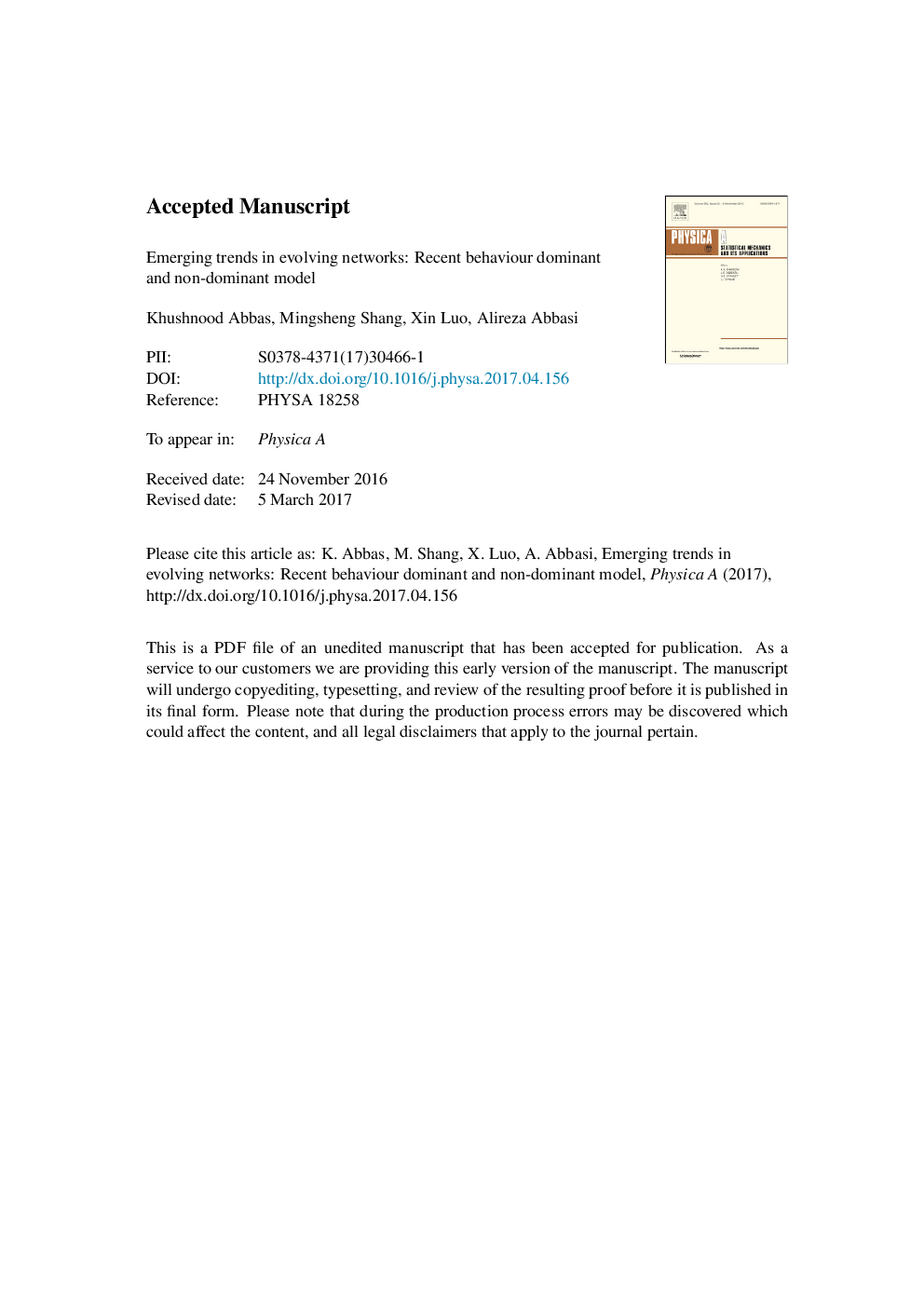| Article ID | Journal | Published Year | Pages | File Type |
|---|---|---|---|---|
| 5102696 | Physica A: Statistical Mechanics and its Applications | 2017 | 25 Pages |
Abstract
Novel phenomenon receives similar attention as popular one. Therefore predicting novelty is as important as popularity. Emergence is the side effect of competition and ageing in evolving systems. Recent behaviour or recent link gain in networks plays an important role in emergence. We exploited this wisdom and came up with two models considering different scenarios and systems. Where recent behaviour dominates over total behaviour (total link gain) in the first one, and recent behaviour is as important as total behaviour for future link gain in the second one. It supposes that random walker walks on a network and can jump to any node, the probability of jumping or making a connection to other node is based on which node is recently more active or receiving more links. In our assumption, the random walker can also jump to the node which is already popular but recently not popular. We are able to predict emerging nodes which are generally suppressed under preferential attachment effect. To show the performance of our model we have conducted experiments on four real data sets namely, MovieLens, Netflix, Facebook and Arxiv High Energy Physics paper citation. For testing our model we used four information retrieval indices namely Precision, Novelty, Area Under Receiving Operating Characteristic (AUC) and Kendal's rank correlation coefficient. We have used four benchmark models for validating our proposed models. Although our model does not perform better in all the cases but, it has theoretical significance in working better for recent behaviour dominated systems.
Related Topics
Physical Sciences and Engineering
Mathematics
Mathematical Physics
Authors
Khushnood Abbas, Mingsheng Shang, Xin Luo, Alireza Abbasi,
